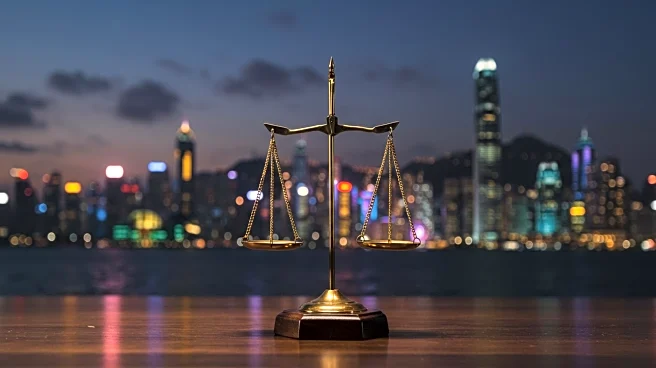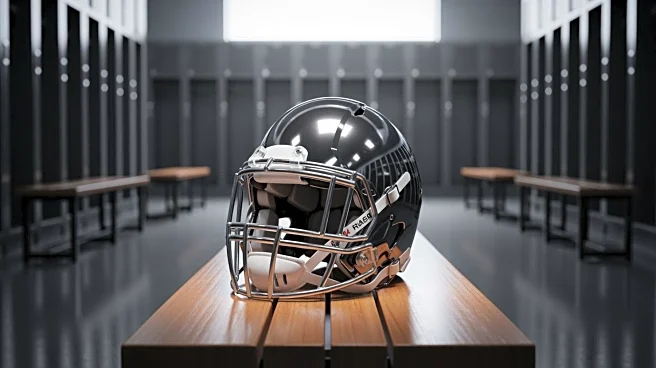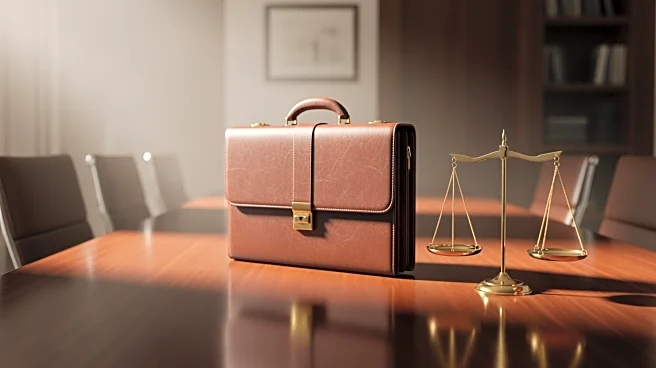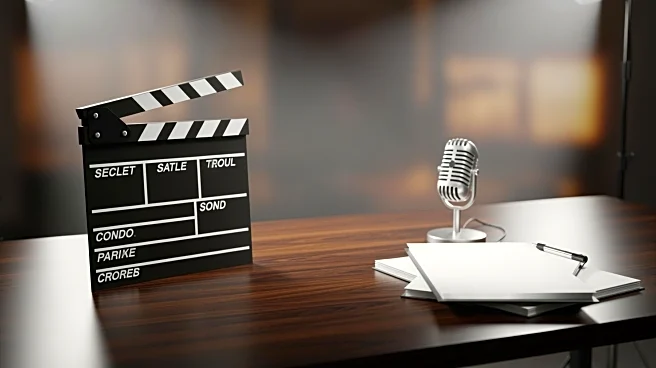What is the story about?
What's Happening?
A Hong Kong court has commenced the final arguments in the national security trial of Jimmy Lai, the founder of the pro-democracy newspaper Apple Daily. Lai, aged 77, was arrested in 2020 under a national security law imposed by Beijing following the 2019 anti-government protests. He faces charges of colluding with foreign forces to endanger national security and conspiring to issue seditious publications. The trial, which has extended beyond its initial 80-day estimate to nearly 150 days, is seen as a significant test of press freedom and judicial independence in Hong Kong. Prosecutors allege that Lai sought foreign intervention, particularly from the United States, against Beijing under the pretense of advocating for freedom and democracy. Lai has denied these allegations, stating he did not request action from U.S. officials during the protests.
Why It's Important?
The trial of Jimmy Lai is pivotal in the ongoing debate over press freedom and judicial independence in Hong Kong, especially under the national security law imposed by Beijing. Lai's case has attracted international attention, with foreign governments and rights groups expressing concern over his prolonged detention and treatment. The outcome of this trial could have significant implications for media operations and civil liberties in Hong Kong, potentially influencing how dissent and freedom of expression are managed in the region. The U.S. has shown interest in the case, with President Trump indicating he would discuss Lai's situation with Chinese leader Xi Jinping, highlighting the international dimension of the trial.
What's Next?
The verdict in Jimmy Lai's trial remains uncertain, with closing arguments delayed due to weather and health concerns. Lai's lawyer reported his client experienced heart palpitations, prompting judges to ensure he receives appropriate medical care. The Hong Kong government has countered claims of inadequate medical treatment, asserting Lai's health is stable. The trial's conclusion could lead to further diplomatic discussions, particularly between the U.S. and China, as President Trump has expressed intentions to address Lai's detention with Xi Jinping. The international community continues to monitor the situation closely.
Beyond the Headlines
The trial underscores the tension between Hong Kong's promised civil liberties and Beijing's increasing control. Lai's case exemplifies the broader struggle for press freedom in Hong Kong, a city once known for its vibrant media landscape. The trial's outcome could set a precedent for future cases under the national security law, affecting how media and dissent are treated in Hong Kong. The international response, particularly from the U.S., may influence diplomatic relations with China, as foreign governments weigh in on human rights and freedom of expression issues.















